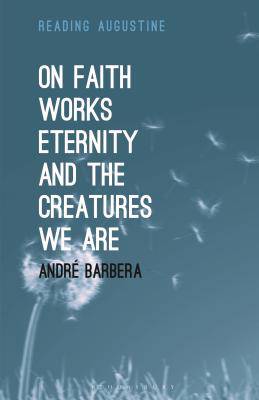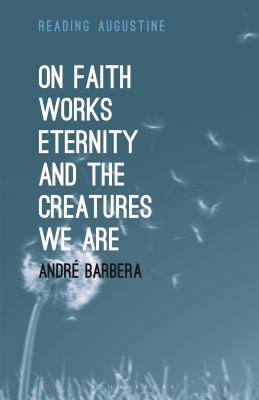
Je cadeautjes zeker op tijd in huis hebben voor de feestdagen? Kom langs in onze winkels en vind het perfecte geschenk!
- Afhalen na 1 uur in een winkel met voorraad
- Gratis thuislevering in België vanaf € 30
- Ruim aanbod met 7 miljoen producten
Je cadeautjes zeker op tijd in huis hebben voor de feestdagen? Kom langs in onze winkels en vind het perfecte geschenk!
- Afhalen na 1 uur in een winkel met voorraad
- Gratis thuislevering in België vanaf € 30
- Ruim aanbod met 7 miljoen producten
Zoeken
Omschrijving
In this volume André Barbera considers the question of faith, how an individual may act faithfully, and what good (if any) is faithful action. Drawing on the letters of the Apostle Paul and the work of philosophical thinkers such as Søren Kierkegaard, Barbera explores numerous aspects of faithful living, from religion, original sin, and tests of faith, to the power of prayer, and even the concept of atheism.
In particular, Barbera formulates a postulate drawn from Augustine's Confessions: God is not bound by time. The person of faith, however, is enslaved by time. Augustine's expression "faith seeking understanding" stakes the claim," but the mode of faith and the end of faith are inherently contradictory. The faithful person waits in pursuit, choking. Works, the anxiety of faith, ensue.
Barbera concludes that the person of faith engages in endless trial, struggle, and contradiction, but in so doing attempts to produce a meaningful life.
In particular, Barbera formulates a postulate drawn from Augustine's Confessions: God is not bound by time. The person of faith, however, is enslaved by time. Augustine's expression "faith seeking understanding" stakes the claim," but the mode of faith and the end of faith are inherently contradictory. The faithful person waits in pursuit, choking. Works, the anxiety of faith, ensue.
Barbera concludes that the person of faith engages in endless trial, struggle, and contradiction, but in so doing attempts to produce a meaningful life.
Specificaties
Betrokkenen
- Auteur(s):
- Uitgeverij:
Inhoud
- Aantal bladzijden:
- 176
- Taal:
- Engels
- Reeks:
Eigenschappen
- Productcode (EAN):
- 9781501356063
- Verschijningsdatum:
- 23/01/2020
- Uitvoering:
- Paperback
- Formaat:
- Trade paperback (VS)
- Afmetingen:
- 140 mm x 213 mm
- Gewicht:
- 249 g

Alleen bij Standaard Boekhandel
+ 104 punten op je klantenkaart van Standaard Boekhandel
Beoordelingen
We publiceren alleen reviews die voldoen aan de voorwaarden voor reviews. Bekijk onze voorwaarden voor reviews.









